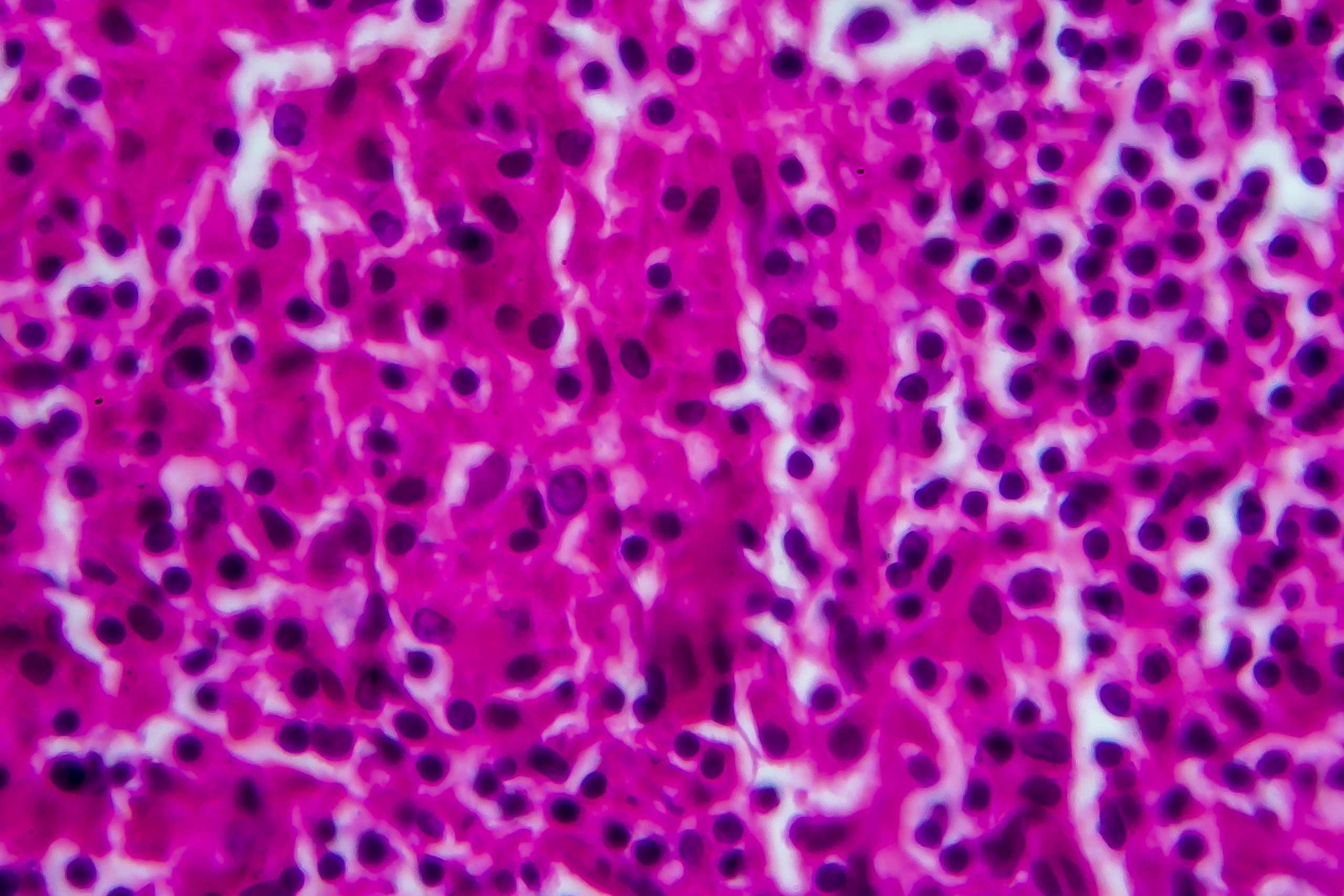FDA approves brexucabtagene autoleucel for MCL
The Food and Drug Administration (FDA) has approved a new path of treatment for patients with mantle cell lymphoma (MCL) on the back of positive results from the ZUMA-2 trial (NCT02601313). The CAR-T construct, brexucabtagene autoleucel, has received approval from the FDA “based on overall response rate and response durability data.”1
MCL is a rare form of non-Hodgkin’s lymphoma (NHL) which presents itself in about 6% of the patient population. It arises in the later stages (III-IV) of disease and is more common in older patients. MCL develops within B cells of the lymph nodes which can then spread via lymphatic channels, often to the bone marrow, liver, and gastrointestinal tract. The B cells originate in the mantle zone of the lymph node, hence the diseases name, and from there, uncontrolled growth results in cancer. The cause is frequently related to genetic factors, with the main culprit being a characteristic genetic lesion involving chromosome 11 and 14, present in 85% of patients. 2,3
The current approaches to treatment for patients with MCL include chemotherapy, stem-cell transplantation, rituximab, and more recently the use of drug combinations including ibrutinib and venetoclax. The different, circumstantial dependent approaches is summarized well by an article published in The New England Journal of Medicine:
“Younger patients without coexisting conditions are treated with intensive chemotherapy, which is commonly consolidated by autologous stem-cell transplantation, whereas older patients or those with coexisting conditions are treated with chemotherapy and maintenance rituximab. Until recently, patients with chemotherapy-resistant disease had few effective treatment options.” 4
The final sentence of the previous quote highlights the lack of effective treatments for this particular form of NHL, and indeed, the median survival for MCL patients is 2-4 years.
This new treatment recently approved by the FDA is an incredibly exciting addition to the MCL treatment armamentarium, with CAR-T being previously unavailable for this patient population.
“We saw really encouraging response rates, and durable responses. A subset of patients mostly treated at MD Anderson, already had 24 months follow-up and in that population, there was more than 40% progression-free survival”
Commented Marie José, of the University of Amsterdam, Amsterdam, the Netherlands, an investigator in the ZUMA-2 study.
Speaking specifically about this new drug approval, Meghan Gutierrez of the Lymphoma Research Foundation, NY, USA, comments: 5
“This approval marks the first CAR-T cell therapy approved for mantle cell lymphoma patients and represents a new frontier in the treatment of this disease.”
The approval of this treatment is a great step for the use of CAR T-cell therapies and specifically MCL, a patient population with often limited therapeutic options.
Written by Robert Stewart
References:
- Wang M, Munoz J, Goy A, et al. KTE-X19 CAR T-Cell Therapy in Relapsed orRefractory Mantle-Cell Lymphoma. New England Journal of Medicine. 2020 April;382(14):1331-1342.
- U.S. Food and Drug Administration. FDA approves brexucabtagene autoleucel for relapsed or refractory mantle cell lymphoma. Available from: www.fda.gov/drugs/fda-approves-brexucabtagene-autoleucel-relapsed-or-refractory-mantle-cell-lymphoma. (Last accessed 03/08/2020).
- Leukemia and Lymphoma Society. Mantle Cell Lymphoma Facts. Available from: www.lls.org/sites/default/files/file_assets/mantlecelllymphoma.pdf. (Last accessed 02/08/2020).
- Tam, C, Anderson MA, Pott C, et al. Ibrutinib plus Venetoclax for the Treatment of Mantle-Cell Lymphoma. New England Journal of Medicine. 2018;378(13):1211–1223.
- U.S. FDA Approves Kite’s Tecartus™, the First and Only CAR T Treatment for Relapsed or Refractory Mantle Cell Lymphoma [Internet]. Businesswire.com. 2020 Available from: https://www.businesswire.com/news/home/20200724005428/en/ (Last accessed 14/08/2020)










